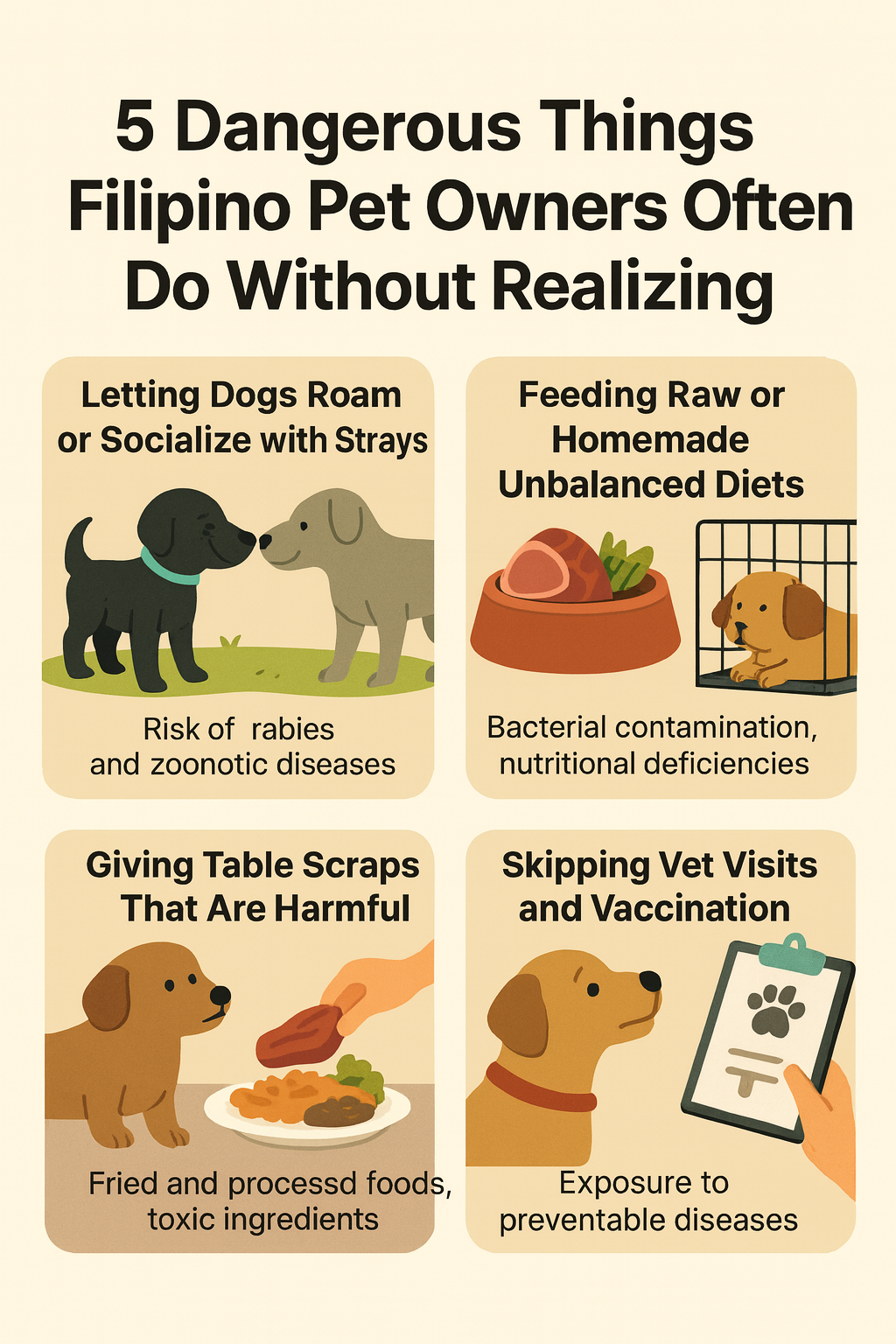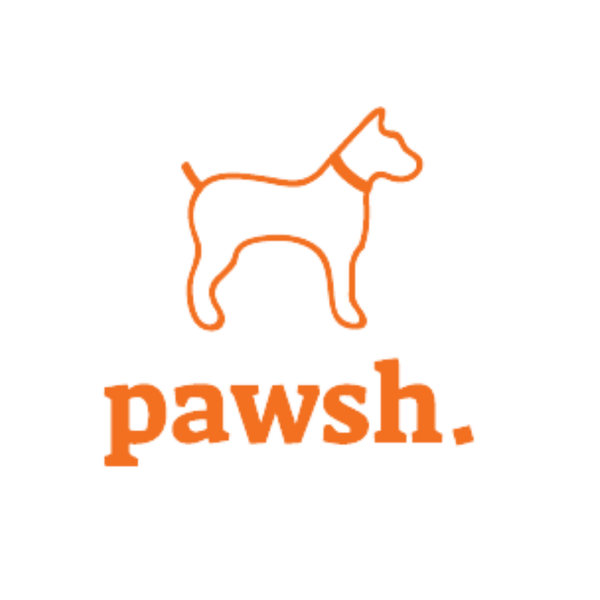
5 Dangerous Things Filipino Pet Owners Often Do Without Realizing
Share
5 Dangerous Things Filipino Pet Owners Often Do Without Realizing
As pet lovers in the Philippines, we want what's best for our dogs. But sometimes well-meaning habits can unintentionally cause harm. From stray interactions to feeding practices, here are five hidden dangers—and how to avoid them.
1. Letting Dogs Roam or Socialize with Strays 🦠
Unrestrained dogs, especially those allowed to mix with unvaccinated street dogs, risk exposure to rabies and other zoonotic diseases. Over 200–300 human rabies deaths still occur annually in the Philippines, mostly from infected dogs (GMA Network, Academia).
Safer choice: Always keep your dog leashed or confined when outdoors. Ensure annual rabies vaccination and regular deworming to protect both your pet and your family (PMC, ResearchGate).
2. Feeding Raw or Homemade Unbalanced Diets
While raw diets and homemade meals are popular, they carry risks of bacterial contamination (Salmonella, E. coli), parasites, and nutrient imbalances. Improperly formulated meals can lead to skeletal issues or vitamin overdose (Wikipedia).
Safer choice: If you’re feeding home-cooked or raw food, consult a veterinarian or veterinary nutritionist to ensure balanced nutrition and safe handling.
3. Crating Dogs All Day With Little Movement
Many Filipino owners keep dogs in cages or crates full-time—sometimes without daily walks. This can lead to physical and emotional stress, muscle atrophy, and behavioral issues (Reddit).
Safer choice: Use crates only for training or rest. Provide daily walks, playtime, and regular interaction to ensure physical and mental well-being.
4. Giving Table Scraps That Are Harmful—Especially for Aspins
Common behaviors like sharing fried or processed foods (table scraps, longganisa, etc.) expose dogs to too much fat, salt, and toxic ingredients like garlic and onions. These can trigger pancreatitis, anemia, and digestive upset (Wikipedia, PMC).
Safer choice: Stick to vet-approved dog food or safe homemade meals (e.g., lean boiled chicken and plain rice). Avoid unseasoned treats and introduce new foods slowly.
5. Skipping Vet Visits and Vaccination, Especially in Rural Areas
Neglecting annual vaccines or general check-ups increases the risk of diseases like parvovirus, distemper, and leptospirosis. This is especially risky in areas where vaccine coverage remains low (many local communities still don’t reach the recommended 70% vaccination rate) (PMC, ResearchGate).
Safer choice: Schedule regular vet visits and keep records of vaccinations. Participate in local vaccination drives when available and consider microchipping or licensing your dog under local Animal Welfare laws (conventuslaw.com, Jurnal Universitas Advent Indonesia).
✅ Summary Table
| 🐾 Common Mistake | 📌 Why It's Dangerous | ✅ What to Do Instead |
|---|---|---|
| Roaming and mingling with stray dogs | Rabies, parasites, zoonotic infection | Keep dogs leashed, vaccinate, deworm |
| Feeding raw or unbalanced homemade diets | Foodborne illness, nutrient imbalance | Consult a vet or nutritionist |
| Crating all day | Physical and emotional stress | Provide exercise and social time |
| Sharing processed or oily human food | Pancreatitis, anemia, GI upset | Feed balanced meals only |
| Skipping vaccinations or check-ups | Exposure to preventable disease | Stay current on vaccines and vet visits |
Final Thought
Caring for dogs in the Philippines means navigating local realities—strays, tropical heat, and homemade food traditions. But many common mistakes are avoidable with simple, responsible steps. By keeping your dog safe, vaccinated, well-fed, and emotionally fulfilled, you're helping build a healthier, happier pet community.
